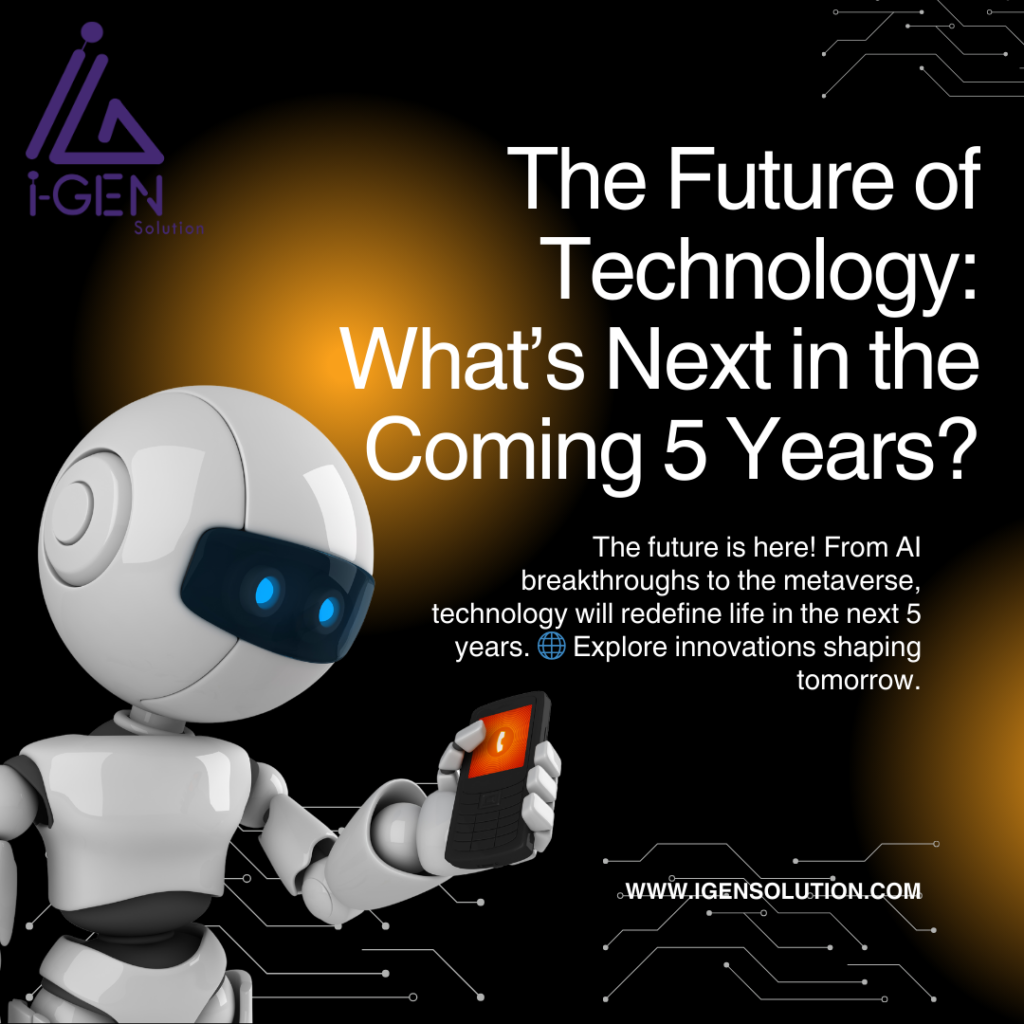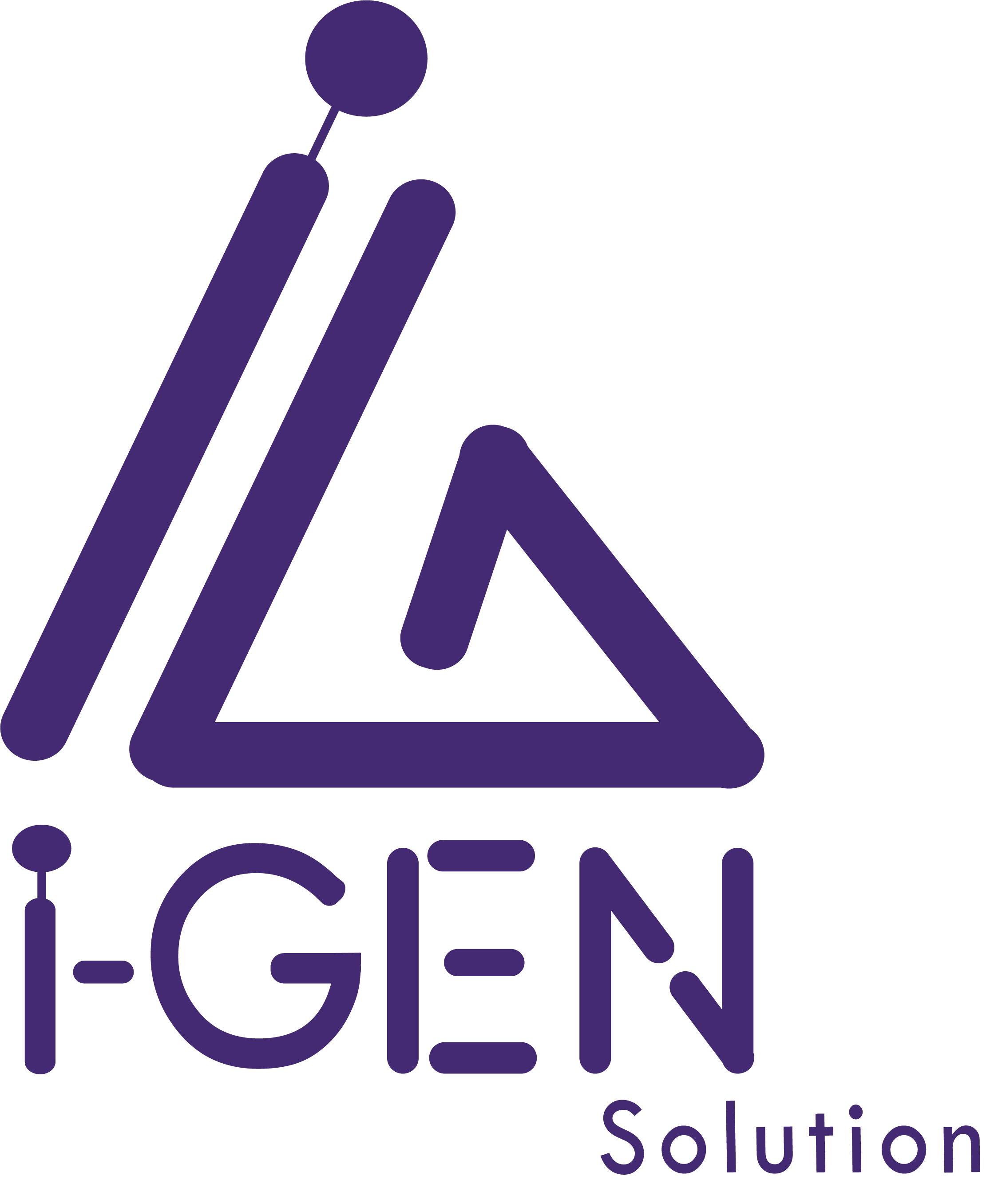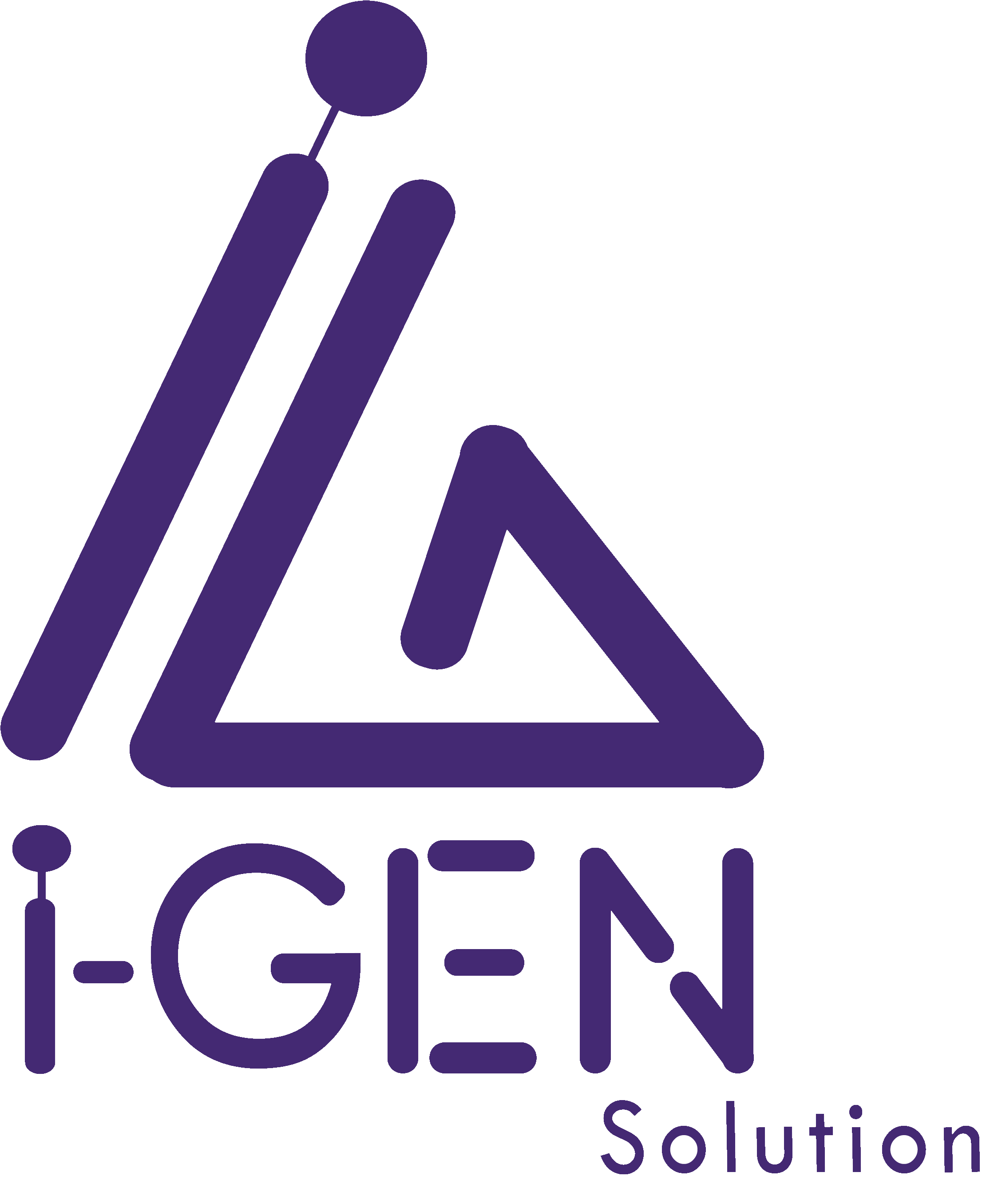The Future of Technology: What’s Next in the Coming 5 Years?
The Future of Technology: What’s Next in the Coming 5 Years?
Technology is evolving at a rapid pace, and in the next five years, we’re about to see a wave of transformative innovations that will change the way we live, work, and interact. From artificial intelligence to quantum computing, the future promises groundbreaking advancements. Let’s dive into what’s coming next.

1. Artificial Intelligence: Smarter, Faster, and Everywhere
Artificial intelligence (AI) has already begun reshaping industries, and its impact will only grow. Over the next five years, AI will:
- Revolutionize healthcare by enabling faster diagnoses and more personalized treatments.
- Automate jobs in various industries, from customer service to manufacturing.
- Enhance education with AI-driven personalized learning tools that adapt to each student’s needs.
AI will continue to become smarter and more intuitive, improving efficiency across all sectors. However, it’s crucial to address the ethical concerns around data privacy, job displacement, and algorithmic biases.
2. The Rise of 5G and Beyond
The rollout of 5G networks has already begun, but its true potential will unfold over the next few years. Expect:
- Faster internet speeds: 5G will enable download speeds up to 100 times faster than 4G, making everything from video calls to large file transfers seamless.
- Smart cities: 5G will power IoT devices, creating smarter urban areas with efficient energy use, automated traffic systems, and connected infrastructure.
- Improved remote work: The enhanced bandwidth will enable more immersive virtual meetings and smoother collaborations, making remote work more effective than ever.
As 5G continues to evolve, research into 6G is already underway, promising even more revolutionary changes.
3. Green Technology: A Sustainable Future
As climate change remains a global challenge, green technology will play a significant role in mitigating its effects. We can expect:
- More renewable energy innovations: Solar, wind, and geothermal energy will become more efficient and affordable.
- Sustainable manufacturing: Companies will adopt eco-friendly practices, reducing carbon footprints and waste.
- AI-powered solutions: Artificial intelligence will help optimize resource usage, predict climate patterns, and develop new ways to reduce pollution.
Green technology will be critical in creating a sustainable future, helping us reduce our environmental impact and fight climate change.
4. The Metaverse: A New Era of Digital Interaction
The metaverse is the next frontier in digital experiences. Over the next five years, expect:
- Virtual reality (VR) and augmented reality (AR): These technologies will become more immersive, allowing us to work, socialize, shop, and entertain ourselves in completely virtual worlds.
- Social interactions: The metaverse will change how we interact with each other, moving beyond traditional social media platforms to virtual spaces where we can meet, collaborate, and engage.
- New opportunities in business: Companies will start creating virtual stores, showrooms, and events, offering customers new ways to experience products and services.
However, challenges related to privacy, addiction, and digital inequality will need to be addressed as the metaverse expands.
5. Quantum Computing: Breaking the Limits
Quantum computing promises to solve problems that classical computers can’t, making it one of the most exciting areas of technology. In the next five years, expect:
- Faster problem-solving: Quantum computers could revolutionize industries such as pharmaceuticals, logistics, and finance by solving complex problems in seconds.
- Advanced encryption: Quantum computing will offer new ways to protect data, enhancing cybersecurity in an increasingly digital world.
- Scientific breakthroughs: From materials science to artificial intelligence, quantum computing could help us make discoveries that were once unimaginable.
While quantum computing is still in its infancy, it holds the potential to reshape industries in ways we can’t yet fully predict.
6. The Evolution of Biotechnology and Healthcare
Biotechnology is making incredible strides, and the future promises even more advances, including:
- Gene editing: Technologies like CRISPR will allow for more precise and effective treatments for genetic disorders.
- Personalized medicine: With the help of AI and genetic research, treatments will be tailored to individual needs, improving outcomes and reducing side effects.
- Enhanced diagnostics: Wearable tech and AI will enable real-time monitoring of health conditions, allowing for earlier detection and treatment.
As we move into the future, biotech will play a crucial role in improving healthcare and extending lifespans.
7. Autonomous Vehicles: The Road to Safer Transport
Self-driving vehicles are one of the most anticipated technologies of the future. In the next five years, expect:
- Increased automation: Cars, trucks, and drones will become more autonomous, reducing the need for human drivers and increasing safety on the roads.
- Better traffic flow: With AI and machine learning, self-driving vehicles will communicate with each other to optimize traffic flow and reduce congestion.
- Enhanced logistics: Autonomous trucks will revolutionize supply chains by making deliveries faster, cheaper, and more efficient.
While fully autonomous transportation still faces regulatory and safety hurdles, it’s only a matter of time before it becomes the norm.
Conclusion
The next five years will bring immense change, driven by advancements in AI, 5G, quantum computing, and more. These technologies will transform how we live, work, and interact, creating exciting new possibilities for businesses and individuals alike. However, as we embrace these innovations, it’s essential to address the challenges and ethical considerations they bring.
At iGen Solutions, we are ready to help you navigate these changes. Whether you need AI solutions, digital transformation, or IT consulting, our expert team is here to guide you through the future of technology.




